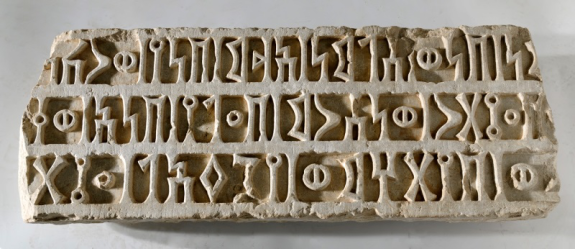ENPI CBCMED – MEDINA

The Phoenician civilisation, which originated in the most eastern shores of the mediterranean sea, is credited for having invented a writing system from which most modern alphabets are derived. It evolved among others into the Nabatean script -from the Kingdom of Nabatea, capital Petra in today Jordan-, from which originated Arabic. These inscriptions, most of which are preserved in great museums of Jordan and Lebanon, are an inestimable heritage for all modern civilisations. However, such masterpieces rarely get the visibility they deserve due to a lack of awareness, even in the Mediterranean Region.
For that reason, the MEDINA project* was launched in order to overcome this hurdle by getting five institutions providing expertise in archaeology and research, cultural heritage development and design.
As leader of the dissemination activities, GAIA-Heritage has developed specific marketing strategies for museums and their epigraphic collections. It included a team of graphic and video experts which worked on the creation of thematic paths within the museums.
Partners:
– The University of Pisa (Italy)
– The Institute of Ancient Near East Studies (IPOA), University of Barcelona
– MAGO Production (Spain)
– Yarmouk University (Jordan)
*Cross-Border Cooperation within the European Neighbourhood and Partnership Instrument (ENPI) Mediterranean Sea Basin Joint Operational Programme